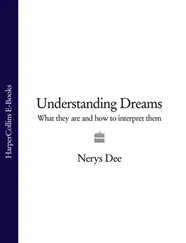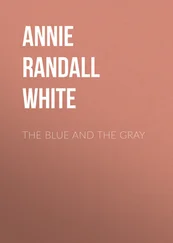‘Did you know,’ added Archimedes, ‘that a pair of pigeons always roosts head to tail, so that they can keep a look-out in both directions?’
‘I know our tame pigeons do,’ said the Wart. ‘I suppose the reason why people are always trying to kill them is because they are so greedy. What I like about wood-pigeons is the clap of their wings, and how they soar up and close their wings and sink, during their courting flights, so that they fly rather like woodpeckers.’
‘It is not very like woodpeckers,’ said Merlyn.
‘No, it is not,’ admitted the Wart.
‘And what is your favourite bird?’ asked Archimedes, feeling that his master ought to be allowed a say.
Merlyn put his fingers together like Sherlock Holmes and replied immediately, ‘I prefer the chaffinch. My friend Linnaeus calls him coelebs or bachelor bird. The flocks have the sense to separate during the winter, so that all the males are in one flock and all the females in the other. For the winter months, at any rate, there is perfect peace.’
‘The conversation,’ observed Archimedes, ‘arose out of whether birds could talk.’
‘Another friend of mine,’ said Merlyn immediately, in his most learned voice, ‘maintains, or will maintain, that the question of the language of birds arises out of imitation. Aristotle, you know, also attributes tragedy to imitation.’
Archimedes sighed heavily, and remarked in prophetic tones, ‘You had better get it off your chest.’
‘It is like this,’ said Merlyn. ‘The kestrel drops upon a mouse, and the poor mouse, transfixed with those needle talons, cries out in agony his one squeal of K-e-e-e! Next time the kestrel sees a mouse, his own soul cries out Kee in imitation. Another kestrel, perhaps his mate, comes to that cry, and after a few million years all the kestrels are calling each other with their individual note of Kee-kee-kee.’
‘You can’t make the whole story out of one bird,’ said the Wart.
‘I don’t want to. The hawks scream like their prey. The mallards croak like the frogs they eat, the shrikes also, like these creatures in distress. The blackbirds and thrushes click like the snail-shells they hammer to pieces. The various finches make the noise of cracking seeds and the woodpecker imitates the tapping on wood which he makes to get the insects that he eats.’
‘But all birds don’t give a single note!’
‘No, of course not. The call-note arises out of imitation and then the various bird songs are developed by repeating the call-note and descanting upon it.’
‘I see,’ said Archimedes coldly. ‘And what about me?’
‘Well, you know quite well,’ said Merlyn, ‘that the shrew-mouse you pounce upon squeals out Kweek! That is why the young of your species call Kee-wick.’
‘And the old?’ inquired Archimedes sarcastically.
‘Hooroo, Hooroo,’ cried Merlyn, refusing to be damped. ‘It is obvious, my dear fellow. After their first winter, that is the wind in the hollow trees where they prefer to sleep.’
‘I see,’ said Archimedes, more coolly than ever. ‘This time, we note, it is not a question of prey at all.’
‘Oh, come along,’ replied Merlyn. ‘There are other things besides the things you eat. Even a bird drinks sometimes, for instance, or bathes itself in water. It is the liquid notes of a river that we hear in a robin’s song.’
‘It seems now,’ said Archimedes, ‘that it is no longer a question of what we eat, but also what we drink or hear.’
‘And why not?’
The owl said resignedly, ‘Oh, well.’
‘I think it is an interesting idea,’ said the Wart, to encourage his tutor. ‘But how does a language come out of these imitations?’
‘They repeat them at first,’ said Merlyn, ‘and then they vary them. You don’t seem to realize what a lot of meaning there resides in the tone and the speed of voice. Suppose I were to say, “What a nice day,” just like that. You would answer, “Yes, so it is.” But if I were to say, “What a nice day,” in caressing tones, you might think I was a nice person. But then again, if I were to say, “What a nice day,” quite breathless, you might look about you to see what had put me in a fright. It is like this that the birds have developed their language.’
‘Would you mind telling us,’ said Archimedes, ‘since you know so much about it, how many various things we birds are able to express by altering the tempo and emphasis of the elaborations of our call-notes?’
‘But a large number of things. You can cry Kee-wick in tender accents, if you are in love, or Kee-wick angrily in challenge or in hate: you can cry it on a rising scale as a call-note, if you do not know where your partner is, or to attract their attention away if strangers are straying near your nest: If you go near the old nest in the winter-time you may cry Kee-wick lovingly, a conditioned reflex from the pleasures which you once enjoyed within it, and if I come near to you in a startling way you may cry out Keewick-keewick-keewick, in loud alarm.’
‘When we come to conditioned reflexes,’ remarked Archimedes sourly. ‘I prefer to look for a mouse.’
‘So you may. And when you find it I dare say you will make another sound characteristic of owls, though not often mentioned in books of ornithology. I refer to the sound “Tock” or “Tck” which human beings call a smacking of the lips.’
‘And what sound is that supposed to imitate?’
‘Obviously, the breaking of mousy bones.’
‘You are a cunning master,’ said Archimedes, ‘and as far as a poor owl is concerned you will just have to get away with it. All I can tell you from my personal experience is that it is not like that at all. A tit can tell you not only that it is in danger, but what kind of danger it is in. It can say, “Look out for the cat,” or “Look out for the hawk,” or “Look out for the tawny owl,” as plainly as ABC.’
‘I don’t deny it,’ said Merlyn. ‘I am only telling you the beginnings of the language. Suppose you try to tell me the song of any single bird which I can’t attribute originally to imitation?’
‘The night-jar,’ said the Wart.
‘The buzzing of the wings of beetles,’ replied his tutor at once.
‘The nightingale,’ cried Archimedes desperately.
‘Ah,’ said Merlyn, leaning back in his comfortable chair. ‘Now we are to imitate the soul-song of our beloved Proserpine, as she stirs to wake in all her liquid self.’
‘Tereu,’ said the Wart softly.
‘Pieu,’ added the owl quietly.
‘Music!’ concluded the necromancer in ecstasy, unable to make the smallest beginnings of an imitation.
‘Hallo,’ said Kay, opening the door of the afternoon school room. ‘I’m sorry I am late for the geography lesson. I was trying to get a few small birds with my cross-bow. Look, I have killed a thrush.’
The Wart lay awake as he had been told to do. He was to wait until Kay was asleep, and then Archimedes would come for him with Merlyn’s magic. He lay under the great bearskin and stared out of the window at the stars of spring, no longer frosty and metallic, but as if they had been new washed and had swollen with the moisture. It was a lovely evening, without rain or cloud. The sky between the stars was of the deepest and fullest velvet. Framed in the thick western window, Aldebaran and Betelgeuse were racing Sirius over the horizon, the hunting dog-star looking back to his master Orion, who had not yet heaved himself above the rim. In at the window came also the unfolding scent of benighted flowers, for the currants, the wild cherries, the plums and the hawthorn were already in bloom, and no less than five nightingales within earshot were holding a contest of beauty among the bowery, the looming trees.
Читать дальше












